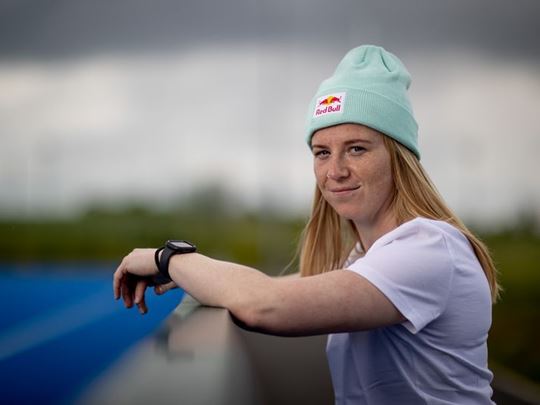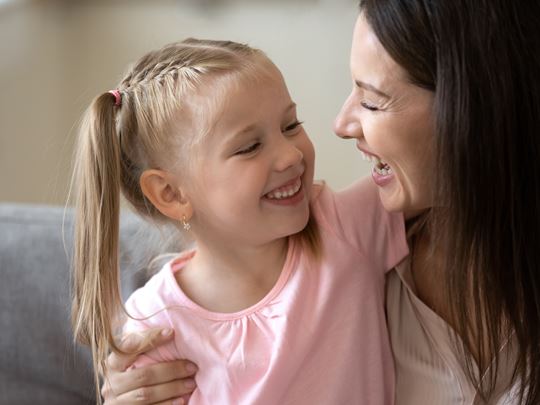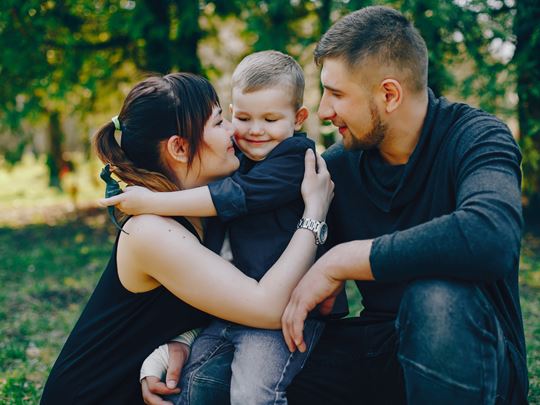
Ayeisha McFerran talks about life in care
Ayeisha McFerran is an international hockey star. She has represented Ireland in the world championships and at the Tokyo Olympics in 2020, studied on scholarship in Louisville, Kentucky and now lives with her girlfriend and collie dog in Holland, where she continues to play professionally for the Dutch team SV Kampong.
In another life, Ayeisha was also a looked after child. The support of her foster family, social workers and teachers, coupled with her passion for sport helped her through what was arguably the most difficult stage of her life.
Image Credit: ©INPHO/Morgan Treacy
At the age of 14, her mother passed away after a long battle with breast cancer, which meant that she and her three siblings needed care, quickly. By 15, Ayeisha was placed with a local family, where she stayed for the next three years. And before she was even 16, she was selected for Ulster province’s hockey A team, which catapulted her into a career of professional hockey.
Before Ayeisha’s mother passed away she was heavily involved in her daughter’s sporting ventures, and always supported her to do her very best, a message that is now deeply embedded in her. “One of my best and last memories of her is when she took me to the all Ireland athletics championships in the middle of absolutely nowhere, for me to throw a javelin. I was 13, and I won, making me the all Ireland champion, and my mum was just screaming at the sideline, and because I was only 13 I was just so embarrassed. But that memory always stays with me. Now I think that if I was to sit and do nothing with my life I would feel like I was letting her down. She always wanted us to keep going. That was just her” she reminisces.
Throughout her school years, her teachers encouraged her sporting career. Motivating her, training her, and putting her forward for the trials that ultimately led her to international athleticism. When Ayeisha entered the world of care, her social workers were very keen for her to keep playing, and striving for sporting success, she recalls the support she was given: “At the start, I think they were a little bit sceptical, but then they started to see my successes and really got behind me. I was lucky, because my social worker’s boss at the time was really into hockey, and she always told me to just ask because the worst that could happen is that someone might say no. They also saw the value in sport, and how it was beneficial to me, and honestly, they really did help me.” She explains that she has always felt supported by the social care team in her area, and has recently asked about how she can get involved to help today’s children in care. She says: “As someone who has been through the system, I feel like I can really help and reassure them. What’s amazing in my situation is that hockey brought us all together, and means that I still have these relationships eight years after becoming a careleaver.”
Ayeisha also touches on the advantages of sport for young people, and children in care, particularly those who might be struggling: “I think sport is brilliant in terms of the physical and mental health side of things, but it’s also so much more than that. It gives you a way to develop relationships, improve your skills, and develop as a person with balance, you have to navigate confrontation, competition and everything that comes with it. It’s bigger than just exercising.”
Transitioning from her family home to that of her foster family was a difficult time for Ayeisha. “I was so awkward to begin with” she explains, “We were in at the deep end and really trying to figure it all out! It was a quick shift from being at home with my siblings to then ending up in care. But honestly, they changed my life.”
She recalls the day she moved into her new home: “I went out to meet them for dinner before, and then they came for me to move in, and I was just trekking there with my bin bags. I had come from a single mum looking after 4 kids, so I didn’t come with much. I remember them asking me if that was all I had, and I said yeah! So that was me, a bin bag in either hand and off I went.” Ayeisha was already an independent person, but she was paired with a family that really suited her character, and who she still stays in touch with today. “I’ve realised that they helped me to become even more independent, and taught me how to figure life out for myself.”
A visit to her foster family is usually on the cards for whenever she returns to Northern Ireland, where she is greeted by the family’s dogs and as many sweet snacks as she can consume in the time that she spends there. She’s grateful to her foster family for enabling her to carry out her ambitions but realises that fostering isn’t easy for people, especially when that foster child is playing sport at such a high level. “As a family, they never held me back, and they would always help me where they could - but they were realists too. They would always encourage me to solve my own problems and realised that hockey was such an essential part of my life. No one ever knows what being in care is going to be like until it’s happening, and I learnt that I really had to appreciate what I had. I was set in one place, I had great support around me, and I didn’t have to worry about packing my bags again. They welcomed me straight into their family, and although I was nervous at the start, at that time I really, genuinely felt like it was my home; they treated me like one of their own daughters. I could be myself, and be part of the furniture and just get on with my life.”
Ayeisha acknowledges foster care’s current recruitment struggles but appreciates the work that Orange Grove’s foster parents do for the children across the local area. Ayeisha says: “People will want to help more and get involved and that’s great, but the main issue is that there are never enough foster parents, there just aren’t. That is why kids then get placed in residential homes instead of with families, and that’s not good enough.” She hopes that by sharing her message, and how supportive her own foster parents, teachers and social workers were to her that she can encourage more to get involved. It is also something that she hopes she can do later on in life, as she explains: “If we have more conversations about kids in care, it’s like anything, it starts to become normalised. The more society gets involved, the more they will see that we are valued members of society. I want them to see that this person could be the next professor, or corner shop owner, or teacher - whatever it is, it just makes people see us as normal, valued individuals. That’s all.”
Interested in fostering?
By phone
One of our team is available to talk to you over the phone to answer any of your fostering queries.
Enquire online
You can get in touch by filling out our online enquiry form with any queries that you may have.





